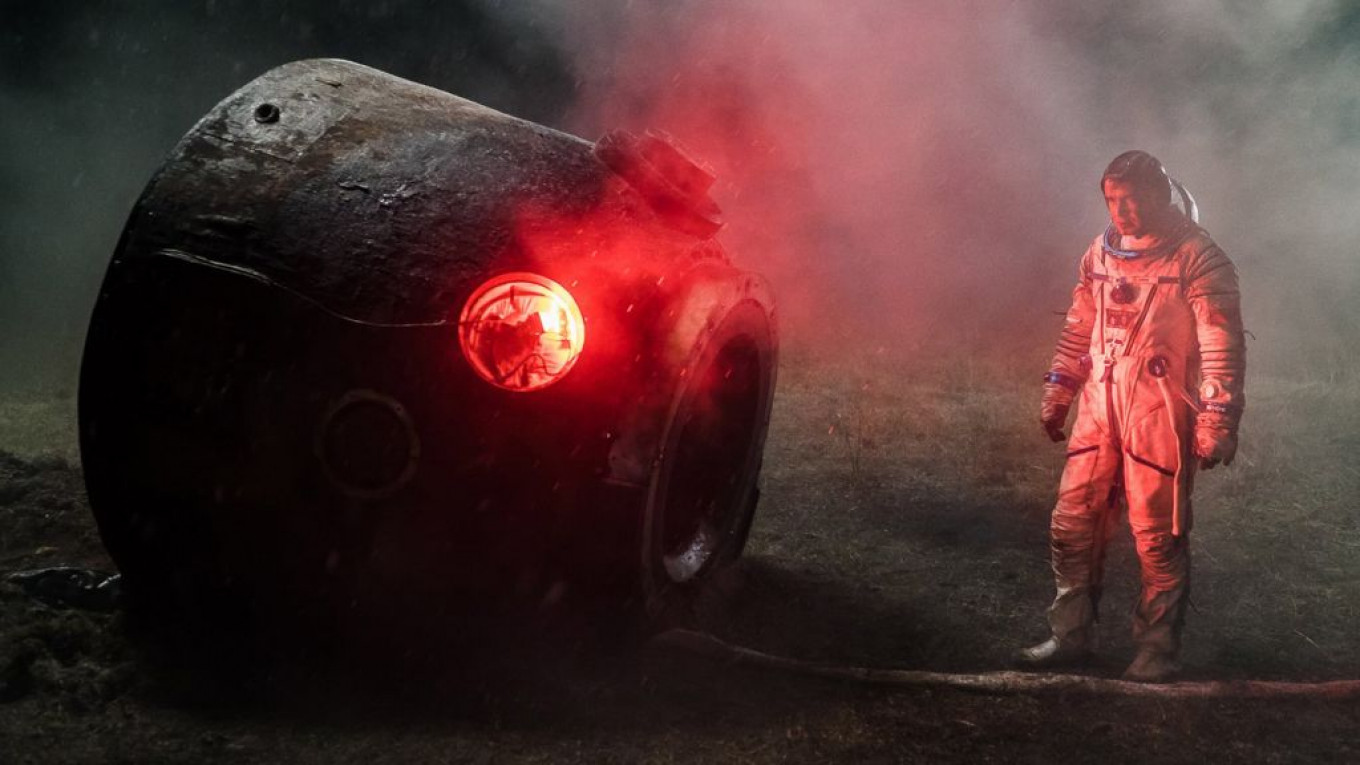2020 was a difficult year for the Russian film industry. Many long-anticipated premieres were postponed when in-theater showings were halted. Other films skipped the theater and went straight to online platforms. Another problem, which will have a longer effect on the industry, was filming — or not filming — under various Covid-19 restrictions.
Most of the films that did premiere were, of course, filmed before 2020. A few promising films, like Andrei Konchalovsky’s “Dear Comrades,” haven’t been widely seen (including by this reviewer) because they have only been shown in theaters, which, despite precautions, are not safe for everyone.
Here are four films we consider the highlights of this odd year, and all of them can be watched on various online platforms.
Scarecrow
"Scarecrow” (Pugalo) directed by Dmitry Davydov, winner of the grand prize at Kinotavr, is the first film from Yakutia to be recognized at Russia’s most prestigious film festival. Davydov’s films are well known in Yakutia (Republic of Sakha), an enormous region in the Russian Far East, and have received accolades and awards at foreign film festivals, too.
“Scarecrow” follows several days in the life of a female healer in a Yakut village. Davydov takes his cue from the “new horror” genre and strikes a perfect balance between gritty realism and fantasy. Shunned by virtually everyone in her village, Scarecrow is the last resort when someone is sick or injured. The viewer never sees what happens when Scarecrow heals a person, but we see the effects the process has on her.
Watching Valentina Romanova-Chyskyyrai play Scarecrow is rather unsettling, but in a good way. A professional singer, she is debuting in this film and won the Best Actress award at Kinotavr.
The Whaler Boy
“The Whaler Boy” (Kitoboy) is another award-winner both in Russia and abroad. It also takes place far from Moscow, in the distant Russian province of Chukotka. But unlike “Scarecrow,” it was directed by an outsider from Moscow, Filipp Yuriev.
The story focuses on a teenage fisherman who decides to sail to Alaska over the Bering Strait after meeting a mysterious webcam model from Detroit online. The film explores the themes of coming of age, love, obsession, friendship — all set against the stark but beautiful landscapes of Chukotka.
Yuriev lovingly portrays this harsh place and its inhabitants, having spent several years putting this project together under the guidance of Alexei Uchitel, a prominent Russian director took on the role of producer here
Man from Podolsk
“Man from Podolsk” is the directorial debut of actor Semyon Serzin, and it has all the makings of a cult classic. Based on the eponymous play by Dmitry Danilov, it’s a story about a young man from Podolsk, a Moscow suburb, who is detained and brought to a police station without any grounds. The police confront him about his dislike of his hometown and subject him to various quasi-intellectual exercises.
“Man from Podolsk” is a Kafkaesque story, where today’s Russian reality is turned topsy-turvy and the police are the only people who care about culture and history. Danilov is an author known for noticing the mundane details, which makes the absurd situations in the film seem very real.
Sputnik
"Sputnik" was one of the movies that didn’t premiere on the big screen in the spring but went straight to multiple online platforms in Russia (ivi.ru, more.tv) and abroad (Amazon, Google Play, iTunes, Vudu). Billed as a sci-fi horror film, "Sputnik" takes place in the early 1980s in the Soviet Union. At a remote military base a recently returned astronaut (played by the charismatic Pyotr Fyodorov) is being questioned about the death of his partner in space. A renegade psychologist (a very convincing Oksana Akinshina) is summoned to help, and it turns out that nothing is what it seems. Despite the plot being rather derivative, the setting and the characters keep it interesting and make "Sputnik" one of the best genre films of the year.
A Message from The Moscow Times:
Dear readers,
We are facing unprecedented challenges. Russia's Prosecutor General's Office has designated The Moscow Times as an "undesirable" organization, criminalizing our work and putting our staff at risk of prosecution. This follows our earlier unjust labeling as a "foreign agent."
These actions are direct attempts to silence independent journalism in Russia. The authorities claim our work "discredits the decisions of the Russian leadership." We see things differently: we strive to provide accurate, unbiased reporting on Russia.
We, the journalists of The Moscow Times, refuse to be silenced. But to continue our work, we need your help.
Your support, no matter how small, makes a world of difference. If you can, please support us monthly starting from just $2. It's quick to set up, and every contribution makes a significant impact.
By supporting The Moscow Times, you're defending open, independent journalism in the face of repression. Thank you for standing with us.
Remind me later.






